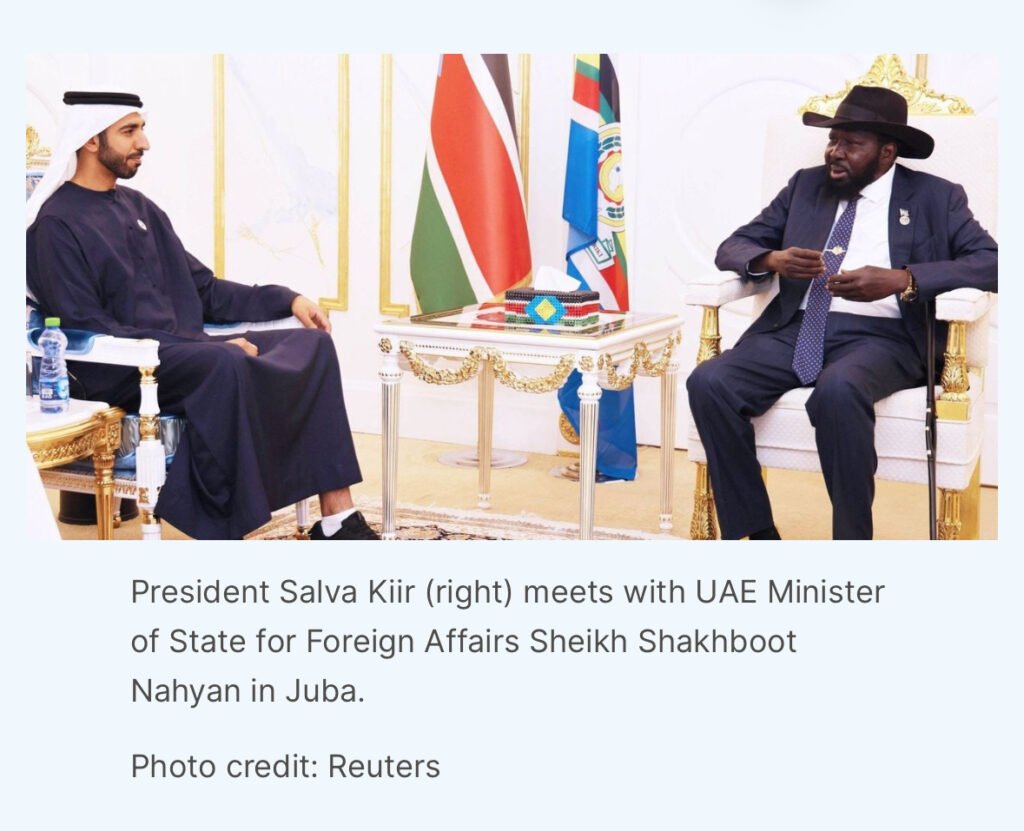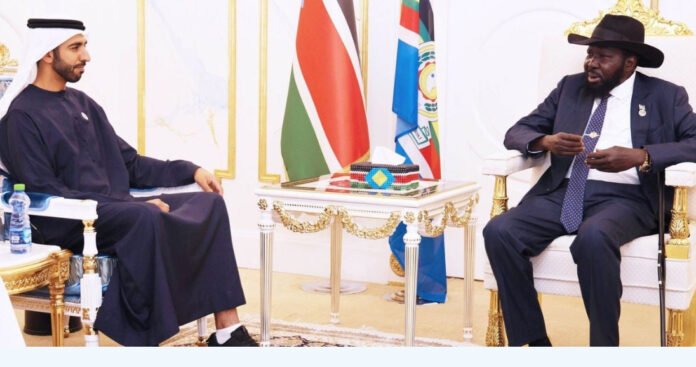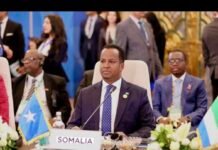Monday, July 7, 2025
JUBA — (Horn Africa News) — South Sudan is intensifying efforts to secure urgent financial assistance from the United Arab Emirates (UAE) as the country’s economy faces collapse under the weight of spiraling inflation, a plummeting currency, and deepening poverty.

President Salva Kiir has made two official visits to the UAE this year in a bid to appeal for financial support. His most recent engagement was on Sunday, when he met with UAE Minister of State for Foreign Affairs, Sheikh Shakhboot Nahyan Al Nahyan, in Juba to advance negotiations on a potential bailout package.
While details of the proposed deal remain undisclosed, officials familiar with the talks describe them as “sensitive and ongoing,” aimed at stabilizing South Sudan’s fragile economy. The government has so far refrained from commenting on the scale of assistance being sought or any conditions that may be attached.
South Sudan’s economy, largely dependent on oil exports, has been battered by falling oil revenues, prolonged internal conflict, and chronic mismanagement. The South Sudanese pound has depreciated sharply against the U.S. dollar, driving up the cost of food, fuel, and other essentials. The worsening economic crisis has left millions facing severe hardship, with humanitarian agencies warning of rising food insecurity and displacement.
“The economic situation is dire. We hope our friends in the UAE will extend their support as we work to restore stability,” a senior government official said on condition of anonymity.
The UAE, which has significantly expanded its economic and strategic footprint in the Horn of Africa in recent years, is seen as a key partner in efforts to bolster stability in South Sudan. The Gulf nation has invested heavily in ports, agriculture, and infrastructure across the region, positioning itself as a major player in shaping the economic future of several African states.
Analysts note that any financial rescue package from Abu Dhabi could increase UAE influence over South Sudan’s key sectors, including oil production and infrastructure development. “This is not just about aid — it’s also about deepening economic and political ties that could reshape South Sudan’s partnerships in the region,” said a regional analyst based in Nairobi.
Ordinary South Sudanese, meanwhile, are feeling the pressure of the collapsing economy. “Every day, prices are higher. People are struggling to survive,” said John Lado, a trader in Juba’s Konyo Konyo market. “We just want to see change.”
With negotiations ongoing, the coming weeks could be crucial in determining whether South Sudan secures the financial lifeline it desperately needs — and at what cost.





